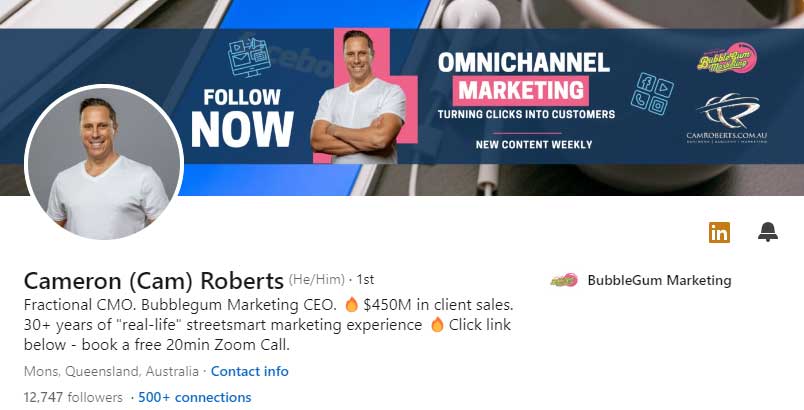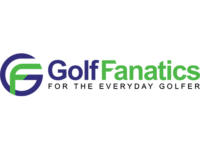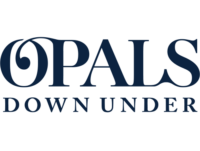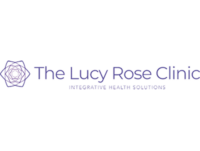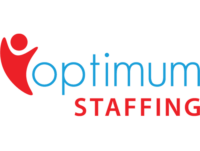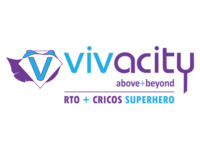How to Improve Your PPC Management
By Cameron Roberts – Founder & CEO of Bubblegum Marketing,
Posted On May 17, 2024
Pay-per-click (PPC) advertising is a powerful tool in the digital marketer’s arsenal. It offers the potential for high returns, but only if managed effectively.
Effective PPC management is a complex task. It requires a deep understanding of the PPC landscape, a strategic approach, and continuous optimization.
In this article, we delve into the intricacies of PPC management and Google Ads Agency work. We aim to provide you with actionable insights and advanced techniques to enhance your PPC campaigns.
We’ll explore the fundamentals of PPC management, from keyword research to landing page optimization. We’ll also delve into advanced strategies, such as smart bidding and the use of AI.
We’ll discuss the importance of localizing your PPC management, with a focus on markets like Perth and Brisbane. We’ll also explore how to integrate PPC with other digital marketing efforts for maximum impact.
Finally, we’ll look at how to stay ahead of the curve by adapting to PPC trends and conducting competitive analysis.
Whether you’re a seasoned PPC specialist or a business owner looking to improve your campaigns, this guide by a leading Google Ads Agency is for you.

Understanding the Fundamentals of PPC Management
Effective PPC management starts with a solid understanding of the fundamentals. These include keyword research, ad copy creation, Quality Score optimization, and landing page design.
Keyword research is the backbone of any PPC campaign. It involves identifying the terms your target audience uses when searching for your products or services.
Crafting compelling ad copy is another crucial aspect. Your ad copy should be persuasive and relevant, encouraging users to click through to your website.
Quality Score is a metric used by Google Ads to determine the relevance and quality of your ads. A higher Quality Score can lead to lower costs and better ad positions.
Finally, landing page optimization is key to converting those clicks into customers. A well-designed landing page can significantly improve your conversion rates.
The Role of Keyword Research in PPC Management
Keyword research is a critical first step in PPC management. It helps you understand what your potential customers are searching for.
By identifying the right keywords, you can target your ads to the right audience. This can lead to higher click-through rates and conversions.
Remember, keyword research is not a one-time task. It requires continuous monitoring and adjustment to stay relevant and competitive.
Crafting Compelling Ad Copy for PPC Management
Your ad copy is the first point of contact with your audience. It needs to be compelling enough to attract clicks.
A good ad copy should clearly communicate your value proposition. It should tell users why they should choose your product or service over others.
Also, include a strong call to action (CTA) to prompt users to take the desired action. A clear and compelling CTA can significantly improve your click-through rates.
The Importance of Quality Score in Google Ads
Quality Score is a crucial metric in Google Ads. It measures the relevance and quality of your ads and keywords.
A higher Quality Score can lead to lower costs per click (CPC) and better ad positions. This can significantly improve the performance of your PPC campaigns.
To improve your Quality Score, focus on improving the relevance of your keywords, ad copy, and landing pages. Also, strive to provide a positive user experience.
Landing Page Optimization for Better Conversions
Once a user clicks on your ad, the landing page is their next destination. A well-optimized landing page can significantly improve your conversion rates.
Your landing page should be relevant to your ad copy and keywords. It should provide the information users are looking for and guide them towards the desired action.
Also, ensure your landing page loads quickly and is mobile-friendly. A slow or poorly designed landing page can lead to high bounce rates and lost conversions.
Advanced PPC Management Strategies
Once you’ve mastered the basics, it’s time to explore advanced PPC management strategies. These can help you optimize your campaigns and maximize your return on investment (ROI).
Advanced strategies include utilizing ad extensions, smart bidding and budget management, leveraging automation and AI, and using data analytics and conversion tracking. Each of these strategies can significantly enhance your PPC performance.

Utilizing Ad Extensions to Enhance Visibility
Ad extensions are a powerful tool in PPC management. They allow you to include additional information in your ads, such as location, phone number, or additional links.
By providing more information, ad extensions can make your ads more attractive and relevant. This can lead to higher click-through rates and better ad performance.
Remember, not all ad extensions may be relevant to your business. Choose the ones that provide the most value to your target audience.
Smart Bidding and Budget Management
Smart bidding and budget management are crucial for maximizing your PPC ROI. They involve strategically allocating your budget to the most profitable keywords and ad groups.
Google Ads offers several smart bidding strategies, such as Target CPA and Target ROAS. These strategies use machine learning to optimize your bids for conversions or conversion value.
Remember, effective budget management requires continuous monitoring and adjustment. Regularly review your campaign performance and adjust your bids and budget as needed.
Leveraging Automation and AI in PPC
Automation and AI can significantly enhance your PPC management. They can automate routine tasks, provide valuable insights, and optimize your campaigns in real-time.
For example, automated bidding can optimize your bids based on real-time data. AI can also provide predictive insights, helping you make more informed decisions.
However, automation and AI should not replace human oversight. Always monitor your automated campaigns and make adjustments as needed.
Data Analytics and Conversion Tracking
Data analytics and conversion tracking are crucial for measuring your PPC performance. They provide valuable insights into how your campaigns are performing and where improvements can be made.
Conversion tracking allows you to see what actions users take after clicking on your ads. This can help you understand which keywords and ads are driving the most conversions.
Data analytics, on the other hand, can provide deeper insights into user behavior. This can help you refine your targeting, optimize your landing pages, and improve your overall PPC performance.
Localizing Your PPC Management
Localizing your PPC management can significantly enhance your campaign performance. It involves tailoring your PPC strategies to local markets, such as Perth and Brisbane.
By understanding the unique needs and preferences of local audiences, you can create more relevant and effective campaigns. This can lead to higher click-through rates, better conversion rates, and a higher ROI.
Localizing your PPC management also involves considering local search trends, such as mobile optimization and voice search. These trends can significantly impact your keyword strategies and ad performance.
Here are some key considerations for localizing your PPC management:
- Understand the local market and audience
- Tailor your keywords and ad copy to local search terms
- Consider local search trends, such as mobile optimization and voice search
- Monitor your local campaign performance and make adjustments as needed
Geo-Targeting for Local Markets: Perth and Brisbane
Geo-targeting is a powerful tool for local PPC management. It allows you to target your ads to specific geographic locations, such as Perth and Brisbane.
By targeting your ads to specific locations, you can reach a more relevant audience. This can lead to higher click-through rates and better conversion rates.
Remember, effective geo-targeting requires a deep understanding of the local market and audience. Regularly review your geo-targeting settings and make adjustments as needed.
Mobile Optimization and Voice Search Considerations
Mobile optimization and voice search are crucial considerations for local PPC management. They can significantly impact your keyword strategies and ad performance.
Mobile optimization involves ensuring that your ads and landing pages are optimized for mobile devices. This can lead to a better user experience, higher click-through rates, and better conversion rates.
Voice search, on the other hand, is a growing trend in local search. It involves optimizing your keywords and ad copy for voice search queries, which are often longer and more conversational than text queries.
Remember, mobile optimization and voice search require continuous monitoring and adjustment. Regularly review your mobile performance and voice search trends and make adjustments as needed.
Integrating PPC with Other Digital Marketing Efforts
Integrating PPC with other digital marketing efforts can significantly enhance your overall marketing strategy. It allows you to create a more cohesive and effective marketing campaign, which can lead to better results.
Integration involves aligning your PPC strategies with your other marketing efforts, such as SEO, content marketing, email marketing, and social media marketing. This can help to create a more consistent and engaging customer experience.
Here are some key considerations for integrating PPC with other digital marketing efforts:
- Align your PPC strategies with your other marketing efforts
- Create a consistent and engaging customer experience
- Monitor your integrated marketing performance and make adjustments as needed
“
Cross-Channel Marketing and PPC Synergy
Cross-channel marketing involves promoting your brand across multiple channels, such as search, social media, email, and mobile. When combined with PPC, it can create a powerful synergy that enhances your overall marketing performance.
By promoting your brand across multiple channels, you can reach a wider audience and create a more consistent and engaging customer experience. This can lead to higher brand awareness, better engagement, and higher conversion rates.
Remember, effective cross-channel marketing requires a deep understanding of your audience and their preferences. Regularly review your cross-channel performance and make adjustments as needed.
The Role of Content Marketing in Supporting PPC
Content marketing plays a crucial role in supporting PPC. It involves creating and sharing valuable content to attract and engage your audience.
By integrating content marketing with PPC, you can create a more engaging and effective marketing campaign. This can lead to higher click-through rates, better engagement, and higher conversion rates.
Remember, effective content marketing requires a deep understanding of your audience and their needs. Regularly review your content performance and make adjustments as needed.
Staying Ahead: PPC Trends and Competitive Analysis
Staying ahead in the PPC landscape requires a keen eye on emerging trends and algorithm changes. It’s crucial to adapt your strategies to these changes to maintain a competitive edge.
Here are some key considerations for staying ahead in PPC:
- Keep an eye on emerging PPC trends and algorithm changes
- Adapt your strategies to these changes
- Regularly review your PPC performance and make adjustments as needed
Adapting to PPC Trends and Algorithm Changes
Emerging PPC trends and algorithm changes can significantly impact your PPC performance. It’s crucial to stay updated with these changes and adapt your strategies accordingly.
For instance, the rise of voice search and AI has led to changes in keyword strategies and bidding algorithms. Adapting to these changes can help you stay competitive and maximize your PPC performance.
Remember, effective adaptation requires a deep understanding of these changes and their impact on your PPC performance. Regularly review your PPC performance and make adjustments as needed.
Conducting a Thorough Competitive Analysis
Conducting a thorough competitive analysis is crucial for staying competitive in the PPC landscape. It involves analyzing your competitors’ PPC strategies and identifying opportunities for improvement.
For instance, you can analyze your competitors’ keyword strategies, ad copy, and landing pages. This can provide valuable insights into their strengths and weaknesses, and help you refine your own strategies.
Remember, effective competitive analysis requires a deep understanding of your competitors and their strategies. Regularly review your competitive landscape and make adjustments as needed.
Conclusion: Continuous Improvement in PPC Management
In conclusion, effective PPC management is a continuous process of learning, adapting, and improving. It requires a deep understanding of PPC fundamentals, advanced strategies, and local market considerations.
Moreover, integrating PPC with other marketing efforts and staying updated with trends is crucial for maintaining a competitive edge. Remember, the key to successful PPC management lies in continuous improvement and adaptation to the ever-changing digital marketing landscape.
Take the next step – schedule a call here to discuss your next PPC Management objectives.
WANT TO BE OUR NEXT SUCCESS STORY?
Book a Free Consult
Schedule a 15-minute Free Consultation via Zoom meetings with our Director, Cam Roberts by clicking the button below now:
Recent Articles
- How We Scaled Google Ads Management for Home Services
- Why Your Email Click Rates Look Low in 2025
- How Our eCommerce Marketing Agency Drove 121% Growth
- What Is Google BARD? A Guide to Google’s New AI
- Facebook Ads Budgeting & Strategies for 2025
- Top Marketing Strategies from Fortune 500 Companies
- Weird & Wonderful: Things Google Probably Doesn’t Want You to Know
- Top 7 Mistakes Businesses Make Without a Facebook Ads Specialist
- Why Automated Sales Funnels Are a Game-Changer for Small Businesses
- How to Choose the Right Facebook Ads Agency in 2025
Request A Quote
Request A Quote for your next Website or Funnel Project below:
